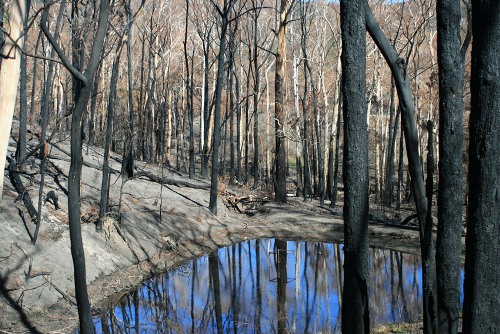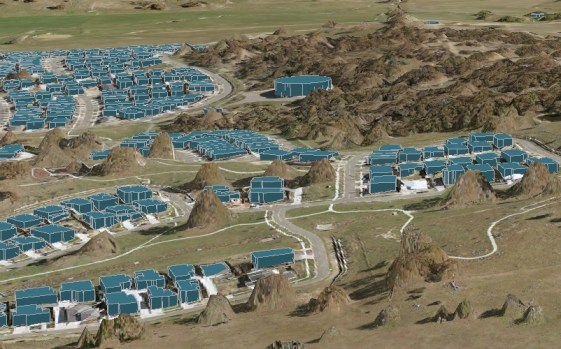 |
| Image: Nillumbik Shire Council. |
By Rob O'Brien
The response to the Royal Commission’s final report into the 2009 Victorian bushfires has been swift, with other states vowing to learn the lessons of the disaster and the establishment of a national research institute into bushfires.
The Premier, John Brumby, yesterday released the Victorian Government’s interim response identifying key recommendations the Government would consult on before forming a final view.
Releasing the interim response with Emergency Services Minister Bob Cameron and Environment and Climate Change Minister Gavin Jennings, Mr Brumby said he and the Government would conduct a short-term, targeted consultation with key agencies, communities and interested stakeholders before announcing the Government’s full response within coming weeks.
“The 2009 Victorian Bushfires Royal Commission Report is a catalyst for change that provides key recommendations to make our State safer from the threat of bushfires,” Mr Brumby said.
“I am determined that this Royal Commission report is never allowed to gather dust. It is crucial that we grasp the opportunity now to make our State safer.
“I am equally determined that the path forward unites all Victorians in one commitment to do all we can to preserve human life in the face of the threat of bushfires.
“My Government will act swiftly and decisively, and we will bring the community with us.”
Mr Brumby said whilst the Government was open to discussion on all recommendations, it was putting forward key issues for further consultation.
“We will undertake a short and targeted consultation on a range of issues before announcing our final response,” he said.
Mr Brumby said the Government would speak to stakeholders about a range of issues, including: the use of refuges; the role of local government, particularly in the area of local bushfire and emergency planning; and, the requirements and policies around evacuations.
Other areas to be analysed and considered by the State Government include the progressive replacement of powerlines with underground cabling or other technology to reduce the bushfire risk; a retreat and resettlement strategy for existing developments in areas of unacceptably high bushfire risk; and, increasing fuel reduction burning to an annual rolling target of 5 per cent minimum of public land.
“I said when I established the Royal Commission that I wanted to leave no stone unturned in the examination of why the terrible events of Black Saturday and the Gippsland fires occurred, and why 173 people tragically died,” Mr Brumby said.
“Since Black Saturday there have been significant new measures introduced to improve Victoria’s preparation for and response to future bushfires and funding for our fire and emergency services is triple what it was a decade ago.
“These measures stem both from the Government’s response to the Royal Commission’s interim recommendations and our own new measures, and include Emergency Alert and changes to warnings, changes to command and control arrangements, leading the first-ever dedicated Fire Action Week, a new 10/30 rule for landowners and significant additional resources.
South Australian Emergency Services Minister, Michael Wright, welcomed the final Royal Commission report and said that other states would be looking closely at the report.
“We’ve been very interested to view this report as it will hold great significance, not only to Victoria but to the entire nation. We’ll be looking closely at what might assist the Rann Government in furthering its commitment to improving our State’s resilience to bushfires.
Meanwhile a national bushfire institute will be established, following the Royal Commission’s recommendation that a permanent national centre for bushfire research be established with reasonable surety of long-term funding.
In 2003 the Australian Government showed its support for the fire and land management industry by establishing the first nationally coordinated centre for bushfire research under its Cooperative Research Centres Program.
Chairman of the Bushfire CRC, Len Foster, said that Australia still had much to learn about bushfires.
“An Australasian Fire Research Institute will give us the new knowledge required for community safety,” he said.
Australia’s fire services have agreed that the Bushfire CRC will transition into the Australasian Fire Research Institute.
“The transition to this Australasian Institute recognises the importance of long-term pure and applied research into fire and the need to work together to protect communities all over Australia from the threat of bushfires,” Mr Foster said.
“While Victoria’s involvement is critical to this research program, the only sensible approach is on a national basis, with strong international links. We all realise that all the answers to future community safety cannot be found in Victoria alone.”
Comment below to have your say on this story.
If you have a news story or tip-off, get in touch at editorial@governmentnews.com.au.
Sign up to the Government News newsletter


